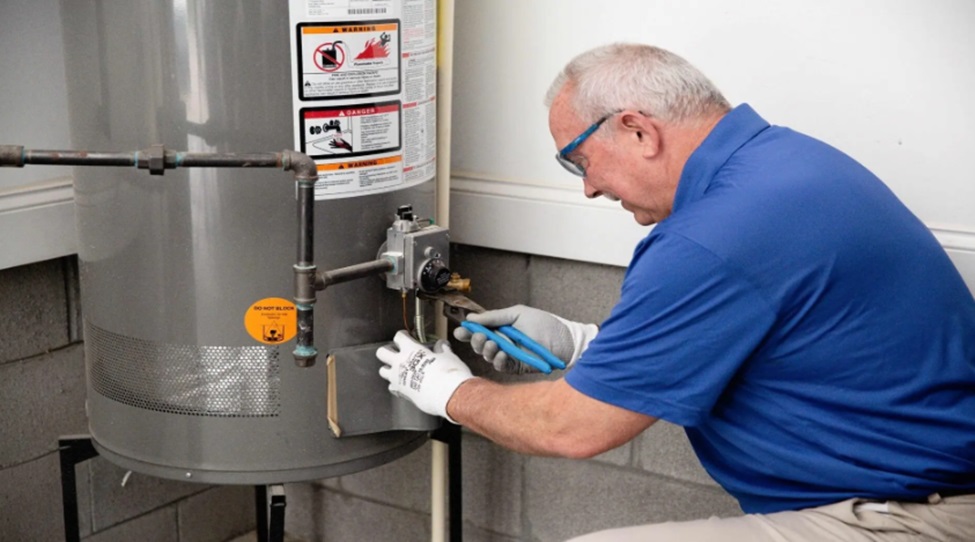Gas plumbing plays a crucial role in the safety and functionality of your home’s gas appliances. From your stove and oven to your water heater and furnace, gas plumbing ensures that these appliances receive a steady supply of natural gas for optimal performance. However, over time, plumbing systems can become outdated or worn, leading to potential safety hazards and decreased efficiency. In this blog post, we’ll explore the importance of plumbing upgrades and how they can enhance safety and efficiency in your home.
Understanding Gas Plumbing
Gas plumbing refers to the network of pipes, fittings, valves, and regulators that deliver natural gas to your home’s appliances. These systems are designed to safely transport gas from the main supply line to individual appliances, where it is used for heating, cooking, and hot water production. Proper installation and maintenance of plumbing systems are essential to prevent leaks, ensure proper ventilation, and minimize the risk of carbon monoxide poisoning.
The Importance of Gas Plumbing Upgrades
Over time, plumbing systems can deteriorate due to factors such as corrosion, wear and tear, and changes in building codes and regulations. Additionally, advancements in technology and materials have led to the development of more efficient and durable plumbing components. By upgrading your plumbing system, you can address these issues and enjoy a range of benefits, including:
Enhanced Safety: Upgrading your plumbing system can significantly enhance the safety of your home. Newer pipes, fittings, and valves are designed to withstand higher pressures and temperatures, reducing the risk of leaks and ruptures. Additionally, modern plumbing systems incorporate safety features such as automatic shut-off valves and leak detection sensors, providing an added layer of protection against potential hazards.
Improved Efficiency: Upgrading to more efficient plumbing components can help reduce energy consumption and lower utility bills. Newer pipes and fittings are designed to minimize heat loss and pressure drop, ensuring that gas reaches your appliances more efficiently. By optimizing the flow of gas through your plumbing system, you can maximize the performance of your appliances and extend their lifespan.
Compliance with Regulations: Building codes and regulations governing plumbing systems are constantly evolving to address safety concerns and technological advancements. By upgrading your plumbing system, you can ensure that your home remains in compliance with current codes and regulations. This not only protects your family and property but also prevents potential fines and penalties for non-compliance.
Common Gas Plumbing Upgrades
There are several common plumbing upgrades that homeowners may consider to enhance safety and efficiency in their homes:
Pipe Replacement: Over time, gas pipes can corrode, develop leaks, or become damaged due to wear and tear. Replacing old or damaged pipes with new, corrosion-resistant materials such as copper or stainless steel can prevent leaks and ensure reliable gas delivery to your appliances.
Valve Installation: Installing shut-off valves and pressure regulators can help control the flow of gas through your plumbing system and prevent over-pressurization or gas leaks. Automatic shut-off valves are particularly useful in the event of a leak or emergency, as they can automatically cut off the gas supply to your home.
Appliance Upgrades: Upgrading to newer, more energy-efficient gas appliances can reduce energy consumption and lower utility bills. Look for appliances with ENERGY STAR certification, which indicates that they meet strict efficiency guidelines set by the Environmental Protection Agency (EPA).
Leak Detection Systems: Installing gas leak detection sensors and alarms can provide early warning of potential gas leaks in your home. These systems can detect even small traces of gas and alert you to the presence of a leak, allowing you to take immediate action to address the problem and prevent potential hazards.
Future-Proofing Your Home
Upgrading your gas plumbing can also help future-proof your home. As technology advances, new appliances may require different specifications for gas supply. By upgrading your system now, you can ensure it’s ready to accommodate any future additions. Moreover, if you plan to sell your house in the future, an upgraded plumbing system can increase its value. Prospective buyers are likely to appreciate the added safety and efficiency that such a system provides.
Professional Installation and Maintenance
When it comes to plumbing upgrades, it’s essential to hire a qualified professional to ensure that the work is done safely and correctly. Professional plumbers have the knowledge, skills, and experience to assess your plumbing system, recommend appropriate upgrades, and perform the installation or maintenance work in compliance with local codes and regulations.
Conclusion
Gas plumbing upgrades are an essential investment for homeowners looking to enhance the safety, efficiency, and performance of their home’s gas appliances. By replacing aging or faulty components, performing preventative maintenance, and ensuring compliance with current regulations, gas plumbing upgrades can provide numerous benefits, including enhanced safety, improved efficiency, and increased property value. Whether you’re upgrading an existing system or installing a new one, investing in plumbing upgrades is a smart decision that can help you create a safer, more comfortable living environment for you and your family.

